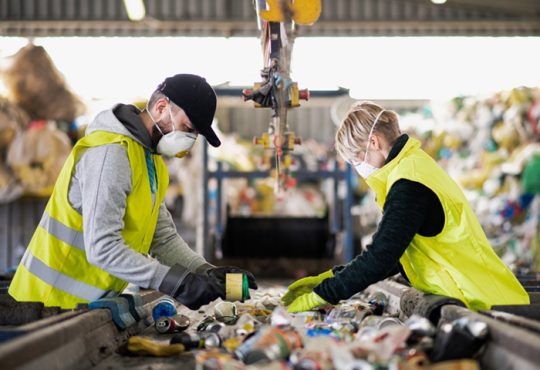
Waste Management in Florida: Challenges, Innovations, and Future Directions
Waste management is a critical aspect of maintaining environmental sustainability and public health. In the state of Florida, with its diverse ecosystems, growing population, and tourism industry, effective waste management is paramount.
Current State of Waste Management in Florida
Florida, known for its beautiful beaches, diverse wildlife, and vibrant cities, generates a substantial amount of waste due to its large population and thriving tourism industry. The state has implemented various waste management strategies to address this issue. The Florida Department of Environmental Protection (FDEP) plays a key role in overseeing waste management practices, ensuring compliance with regulations, and promoting sustainable solutions.
One of the significant challenges faced by Florida is the sheer volume of waste generated. The state’s growing population, combined with the influx of tourists, contributes to a substantial amount of municipal solid waste (MSW) and other types of waste. Managing this waste effectively is crucial to prevent environmental degradation, protect wildlife, and maintain the state’s aesthetic appeal.
Challenges in Waste Management
Several challenges hinder efficient waste management in Florida. One of the primary issues is the disposal of waste in landfills. Landfills have environmental implications, including the release of greenhouse gases, soil and water contamination, and the depletion of valuable land. As available landfill space diminishes, finding sustainable alternatives becomes imperative.

Illegal dumping is another challenge, particularly in less-populated areas. Some individuals, driven by convenience or a lack of awareness, dispose of waste improperly, leading to environmental hazards and the degradation of natural habitats. The state must address this issue through increased public awareness and enforcement measures.
Hurricanes and severe weather events pose unique challenges to waste management in Florida. These events can result in widespread debris, overwhelming existing waste management infrastructure. Efficient planning and disaster preparedness are essential to mitigating the impact of such events on waste management.
Innovations in Waste Management
Despite these challenges, Florida has embraced innovative approaches to waste management. Recycling programs have been expanded to reduce the volume of waste sent to landfills. Single-stream recycling, where various materials are collected in a single bin and then sorted at recycling facilities, has made recycling more convenient for residents and businesses.
Waste-to-energy (WTE) initiatives have gained traction in Florida. These projects convert waste into energy through processes like incineration, helping to reduce the reliance on landfills and contributing to the state’s energy needs. However, WTE facilities must be carefully regulated to minimize environmental impacts.
Advanced recycling technologies, such as pyrolysis and anaerobic digestion, are being explored to extract value from waste and reduce its environmental impact. These technologies can convert organic waste into valuable products like biofuels and fertilizers, promoting a circular economy.
Community involvement and education programs have been implemented to raise awareness about proper waste disposal and recycling practices. These initiatives aim to instill a sense of responsibility in residents and businesses, fostering a culture of sustainability.
Future Directions and Sustainability
Moving forward, Florida’s waste management strategies must align with the principles of sustainability. A shift towards a circular economy, where waste is minimized and resources are reused and recycled, is essential. This involves not only efficient waste collection and disposal but also a broader emphasis on reducing overall waste generation.
Investments in research and development of new waste management technologies will play a crucial role in shaping the future of waste management in Florida. Collaboration between government agencies, private sector entities, and research institutions is essential to driving innovation and implementing effective solutions.
Enhanced data collection and analysis can provide valuable insights into waste generation patterns, allowing for more targeted and efficient waste management strategies. The integration of smart technologies, such as IoT sensors, can improve the monitoring of waste collection and optimize routes for garbage trucks, reducing fuel consumption and emissions.
Incentivizing businesses to adopt sustainable practices and reduce packaging waste can significantly contribute to waste reduction efforts. The implementation of extended producer responsibility (EPR) programs can encourage manufacturers to take responsibility for the entire lifecycle of their products, from production to disposal.
Waste management in Florida is a multifaceted challenge that requires a comprehensive and sustainable approach. The state has made significant strides in adopting innovative solutions, but ongoing efforts are crucial to address the increasing volume of waste, combat illegal dumping, and prepare for the impacts of severe weather events.
The future of waste management in Florida lies in embracing cutting-edge technologies, fostering community engagement, and prioritizing sustainability. By integrating circular economy principles, investing in research and development, and implementing forward-thinking policies, Florida can build a resilient waste management system that protects its environment and enhances the quality of life for its residents.





